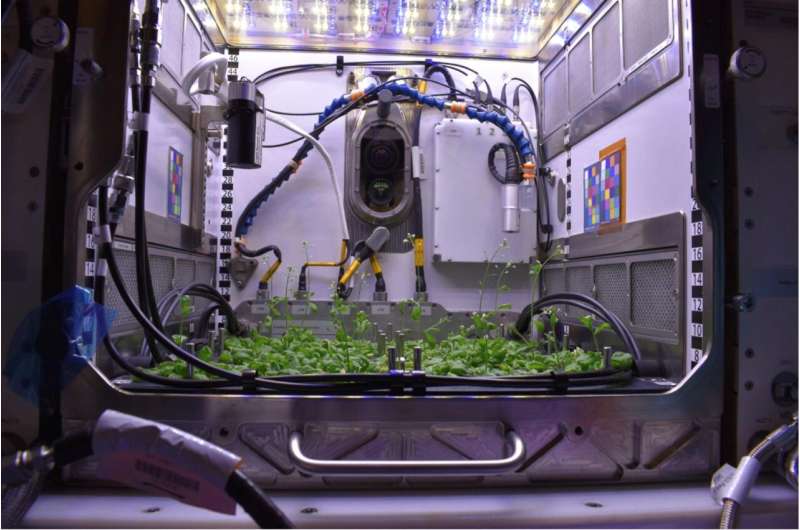When exposed to environmental stress, such as spaceflight, plants undergo surprising epigenetic changes. Meaning, instead of changing existing information in the DNA, extra information is added which affects gene expression.
What remains unknown and not yet tested is if these changes remain constant from one plant generation to another, like the adaptive changes that occur in Earth-based plant stresses.
With Plant Habitat-03, seeds from Earth-based plants will be grown-out aboard the space station, harvested on-orbit and returned to Earth. These seeds will then be re-flown together with comparable seeds that were not previously flown in space to see if epigenetics changes from spaceflight affected results in the subsequent generation of plants flown in space.
This process will give researchers insight into how plants adapt in space from one generation to another.
Advantages of adaptative plants
Plant evolution on Earth can take thousands of years, but research aboard station aims to see if plants could quickly adapt via epigenetic changes from one generation to another in the microgravity environment.
By understanding the effects of extreme environments on plants, scientists will be able to determine whether a growing generation of plants in space can create subsequent generations of plants with a similar adaptive advantage.
"Plant Habitat-03 will provide a better understanding of how the epigenome contributes to an organism's ability to adapt to environmental stress, in both current and subsequent generations," according to Sharmila Bhattacharya, space biology program scientist in NASA's Biological and Physical Sciences Division at NASA Headquarters in Washington.
"This is important insight into how astronauts could potentially grow repeated generations of crops in orbit as well as on the Moon or Mars to provide food and other services aboard future space missions. The results can also support development of strategies for adapting crops for growth in extreme environments on Earth."
This investigation, among many other research initiatives, will enable scientists to better understand how biological phenomena respond to the extreme conditions of space. This information is critical as NASA prepares for future human exploration, including the agency's Artemis missions that will send astronauts to the Moon to prepare for future expeditions to Mars.
Provided by NASA



